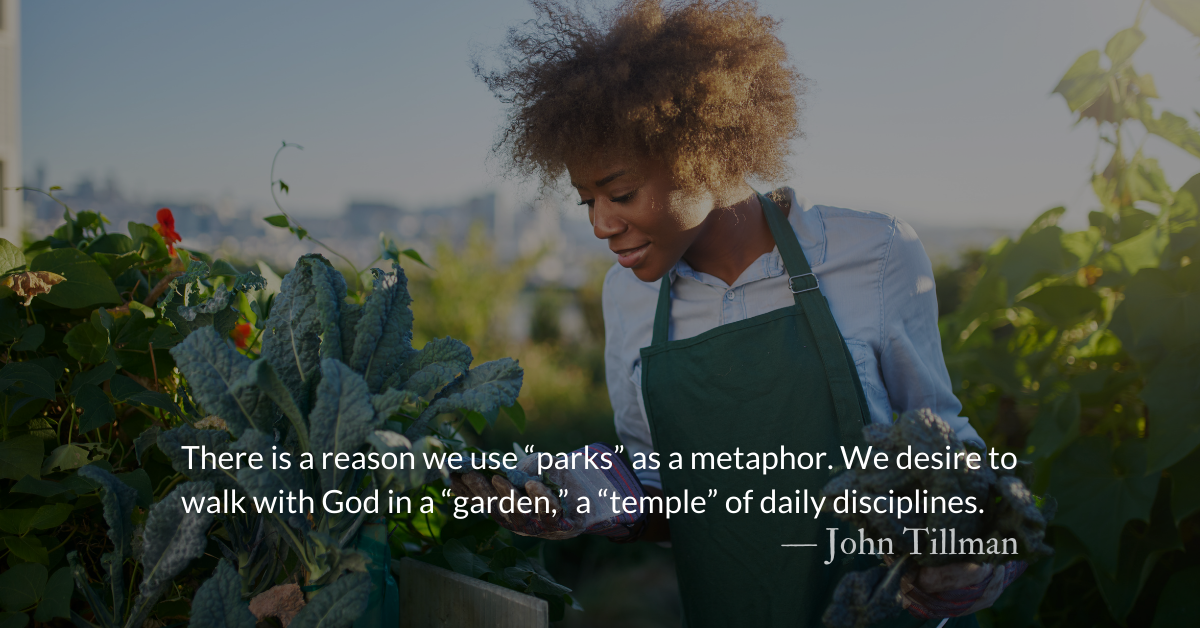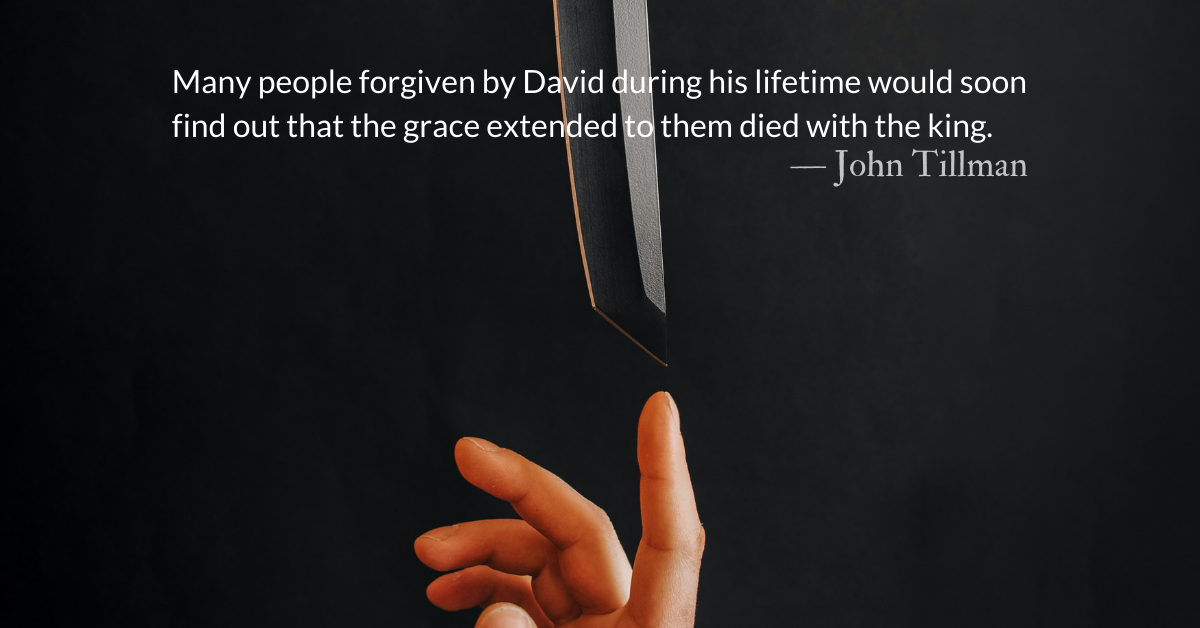Scripture Focus: 1 Kings 7.51
51 When all the work King Solomon had done for the temple of the Lord was finished, he brought in the things his father David had dedicated—the silver and gold and the furnishings—and he placed them in the treasuries of the Lord’s temple.
Reflection: Of Temples and Gardens
By John Tillman
Gardens are places where nature is maximized and brought to greater, more ordered, and more beautiful potential.
Gardens and parks are places to meet with God. They are places of planting and of sacrifice. The Tabernacle, Solomon’s Temple, and other biblical Temples mimic and recreate the imagery of Eden’s garden. The Temple was a structure of worship, a physical liturgy that, when followed, allowed the worshiper to return to the relationship of the garden and walk with God.
The theme of gardens runs strongly throughout the scriptures.
Humanity first dwelt with God in a garden, maintaining and co-managing the garden with God. When that relationship was fractured by sin, we found ourselves excluded from the garden, unworthy to tend it or eat its fruits. The first sacrifice happened in the garden when God killed a creature to clothe humanity, covering our nakedness.
Noah began reestablishing the post-flood world by planting a vineyard, a specialized garden. In the psalms and prophets, God referred to Israel as his garden, his vineyard. Jesus amplified this imagery in his most direct (and offensive) parable against the religious leaders. He cast them as the unworthy tenants of God’s vineyard who would be cast out and killed by God the landowner.
The first drops of Christ’s propitiating blood fell in the Garden of Gethsemane. The Lamb of God began to bleed there amongst the wooded garden—the first pressing of the salvific work to come.
Jesus cared deeply about the Temple (risking death by cleansing it) yet he told the woman at Sychar that soon, it would not matter whether she worshiped on her own mountain or in Jerusalem.
That time is now. We worship not in golden colonnades, with bronze basins of water, or the blood of animals. We worship, if we do so correctly, in spirit and in truth. There is a reason we use “parks” as a metaphor. We desire to walk with God in a “garden,” a “temple” of daily disciplines.
What does the garden of your worship look like? What are you planting in your garden, with faith that God will cause gospel seeds to grow?
What is your daily liturgy? What value have you placed in your temple that reminds you to value your relationship with God? How are you decorating your worship to make it attractive and remind you of God’s blessing?
Divine Hours Prayer: The Refrain for the Morning Lessons
The heaven of heavens is the Lord’s, but he entrusted the earth to its peoples. — Psalm 115.16
– From The Divine Hours: Prayers for Summertime by Phyllis Tickle.
Today’s Readings
1 Kings 7 (Listen – 5:10)
Ephesians 4 (Listen – 2:41)
Read more about Seeking After a Seeking God
He will meet with us in a corrupted Temple, as he met with Isaiah.
Read more about Cultivation Leads to Harvest
Cultivation leads to harvest. Harvests, when shared, lead to celebration.











